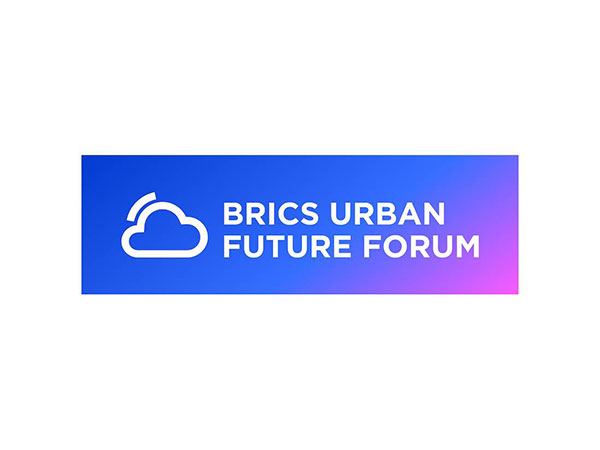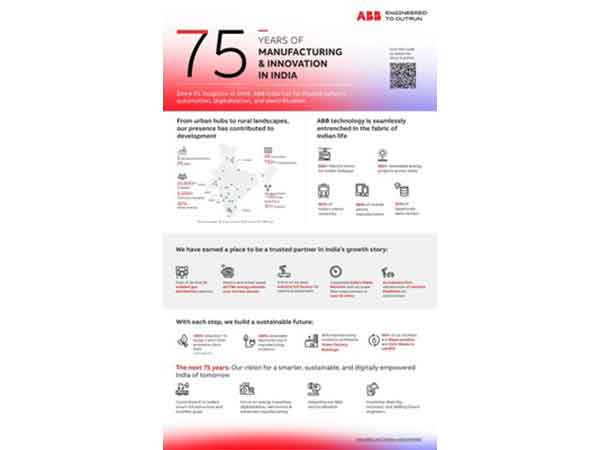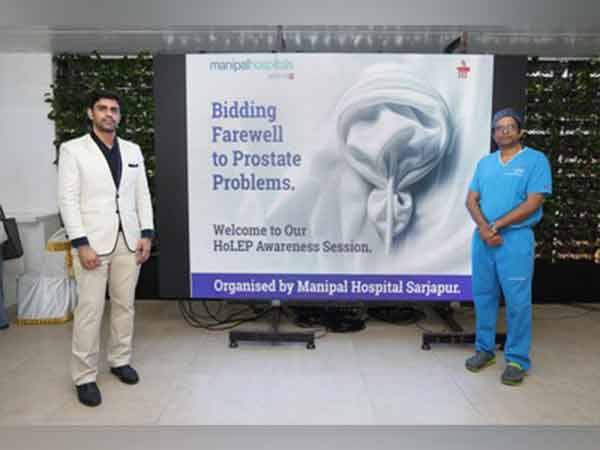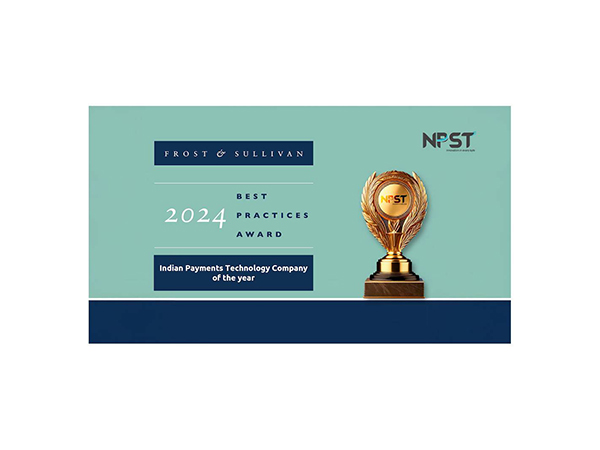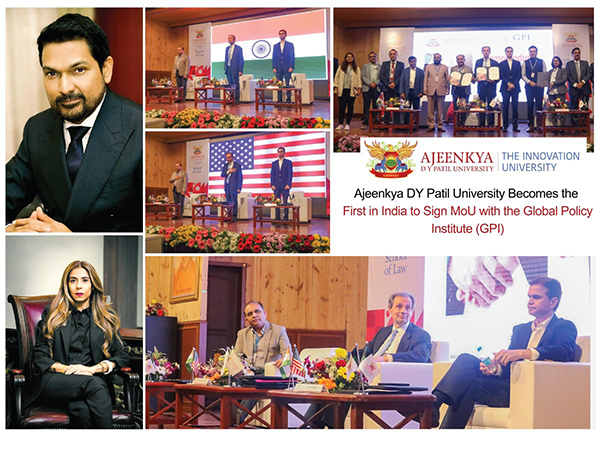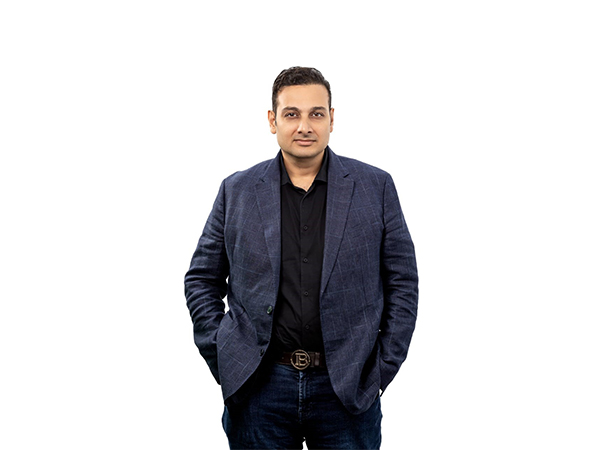BRICS Urban Future Forum Draws More Than 13,000 Attendees from over 30 Countries Around the Globe
Oct 02, 2024
BusinessWire India
Moscow [Russia], October 2: Cloud City BRICS Urban Future Forum wrapped up in Moscow, where experts gathered recently in September to discuss the future of sustainable development in megacities within the member countries. Also at the event, Moscow was honored with the World Innovation Award. Additionally, during the forum, several prestigious rankings were released. Moscow ranked first among the top five BRICS cities for technological and spatial development, placed third in the BRICS-250 rating, and was also featured in the top ten list of the HSE Global Cities Innovation Index, as compiled by the National Research University Higher School of Economics.
The Forum was traditionally chaired by Nobel Peace Prize laureate Rae Kwon Chung. During the event, he often highlighted Moscow's achievements in tackling environmental challenges.
"We should all learn from Moscow and Russia. In my opinion, BRICS Urban Future Forum has been instrumental in sharing these lessons and successful management cases. In my perspective as a climate change expert, exchanging experiences and learning from other cities is incredibly valuable," said Rae Kwon Chung.
The Forum was visited by 24 delegations from 21 countries, with attendees coming to the Russian capital from South Korea, China, India, the UAE, Brazil, Turkey, South Africa, and various other nations.
The Forum featured several keynote speakers, including Maimunah Mohd Sharif, Mayor of Kuala Lumpur and former Executive Director of UN-Habitat; Jeffrey Sachs, the world's most influential economist according to The Economist and the New York Times, who serves as an advisor to the UN Secretary-General; Daron Acemoglu, an economist and professor at the Massachusetts Institute of Technology; Sheikh Rashid bin Abdulrahman bin Rashid Al Khalifa, Governor of the Capital Province of Bahrain; Thomas Sudhof, winner of the Nobel Prize in Physiology or Medicine 2013; American economist Jeffrey Sachs noted during his speech at the Forum that the BRICS countries will soon host more than half of the world's megacities, and the members of the group are seeing impressive results from their collaborative efforts.
"There is cooperation between the BRICS countries. BRICS is a group that really works together. That's amazing. But I would also like to see that kind of interaction between the United States and Russia, as well as between the United States and China. So that instead of having two opposing camps that further divide the world, we could have cooperation. But there definitely is none," mused Jeffrey Sachs.
During the Forum, experts and participants exchanged their experiences in developing innovations, implementing artificial intelligence and augmented reality technologies in urban solutions, advancing "smart city" technologies, and achieving successes in creating cloud services.
The Forum also addressed the threats posed by high rates of urbanization and rapid technological development. Daron Acemoglu, an economist and professor at the Massachusetts Institute of Technology, voiced concerns about the integration of artificial intelligence into the daily life of megacities.
"It's been proven that AI-assisted decision-making tools don't make the process more efficient. AI models often lack sufficient information and make mistakes. But even when they do have quality data, such technologies demotivate people and undermine their desire to be creative," Daron Acemoglu stated.
Alongside discussions about opportunities and threats, the Forum traditionally honored megacities and their leaders for their contributions to sustainable development and tackling environmental issues during the World Innovation Award ceremony. The award emphasizes the importance and priority of technological advancements in achieving sustainable development. Nobel Peace Prize laureate Rae Kwon Chung presented the award to Moscow Mayor Sergei Sobyanin.
Experts named Moscow the best in the "Sustainable Cities and Communities" category for its efforts in implementing innovative sustainable technologies across land, water, and air. Russia's capital was awarded for three projects, including the Pixel cleaning robot, Moscow's municipal fleet, and the city's environmental monitoring laboratories.
During the Cloud City BRICS Urban Future Forum, the top five cities from the BRICS countries were announced based on the Urban & Innovation Environment Index. This index, put together by a consortium of research organizations from China, India, and Russia, evaluates cities on their capacity to provide residents with convenient access to a wide range of physical and digital services. Moscow secured the top position in the ranking, maintaining its standing from the previous year. Shanghai, St. Petersburg, Beijing, and Guangzhou were also among the leaders.
International experts pointed out Moscow's well-balanced spatial development and the easy access residents have to a variety of city services. They also highlighted the city's adoption of new technologies across different sectors, the ongoing advancements in transport infrastructure, and the availability of public transportation. Additionally, they noted Moscow's significant efforts to protect the environment and ensure that green spaces are conveniently accessible to the public. Moscow improved its rankings across several indicators compared to the previous year, thereby reinforcing its leading position.
The results of the BRICS-250 Index, compiled by the international analytical publication World Economic Journal (Hong Kong, China), were also unveiled in Moscow. The Russian capital secured third place among BRICS business capitals, with Beijing taking the top spot and Abu Dhabi coming in second. The following Russian companies were featured in the ranking of BRICS technology firms based on their potential for new technology development, innovation, sustainability, and strategic focus, particularly in relation to their ESG and CSR strategies: Sber, Yandex, Rostelecom, VTB, Vkontakte, MOEX, Rosneft, and X5 Group, among others.
The results of the HSE Global Cities Innovation Index 2024 were also presented at the Forum. Experts from the Institute for Statistical Studies and Economics of Knowledge of the National Research University Higher School of Economics analyzed the competitive advantages of cities in terms of their appeal to leaders in science, high-tech, and creative industries. Moscow ranked in the top ten of the index, achieving high scores in the categories of "Technological Development," "Creative Industries," and "Urban Environment." Also in the top ten were London, New York, Tokyo, Beijing, San Francisco, Paris, Shanghai, Los Angeles, and Seoul.
In addition, guests and participants of the Forum had the opportunity to explore projects from Russian developers and check out innovative technological solutions. Seventeen Moscow high-tech companies were showcased at the stand of the Moscow City Government. The exhibitors included participants from the Moscow Innovation Cluster and Skolkovo. The showcased innovations included plastic recycling technology, robotic complexes, spacecraft models, and cyber prostheses, along with charging stations and portable power supplies for electric vehicles.
Fifteen roadshows were organized for the forum guests, attracting over 150 attendees. Foreign delegations visited such key facilities of Moscow's technological infrastructure as the Metro Situation Center, the Digital Twin of Moscow, and Skolkovo Technology Park, among others.
The BRICS Green Cities Forum, organized by the Moscow City Government, took place for the first time as part of the forum. The forum's extensive environmental program served as a platform for exchanging experiences and discussing the integration of green innovations into urban life.
The BRICS Green Cities Forum focused on both practical and theoretical aspects of addressing challenges: showcasing and testing innovative approaches, minimizing anthropogenic impact, creating sustainable development strategies, promoting green habits, and raising citizens' awareness of ways to preserve the environment.
The participants of the BRICS Green Cities Forum included: Rae Kwon Chung; Mohammed Al-Ahmari, representative of the National Center for Vegetation Development and Combating Desertification; Naseiba Al-Marzouki, Director of Research and Development Department and Director of Innovation at the Ministry of Energy and Infrastructure of the United Arab Emirates; Mariam Ahmed Al-Raisi, Head of Urban Planning Division at the Ministry of Energy and Infrastructure of the United Arab Emirates. Dr. Batyr Berdyklychev, representative of the World Health Organization (WHO) in the Russian Federation; and Sergey Bobylev Head of Environmental Economics Department, Faculty of Economics, Moscow State University, Professor, Doctor of Economics, Honored Scientist of the Russian Federation, Academician of the Russian Academy of Natural Sciences and the Russian Academy of Ecology.
One of the highlights of the BRICS Green Cities Forum was the international ecothon titled "Green Code of Moscow." This event attracted over 1,700 participants from 27 countries, both online and at the Zaryadye venue.
Official website of the forum: https://cloudcityconf.com/
(ADVERTORIAL DISCLAIMER: The above press release has been provided by BusinessWire India. ANI will not be responsible in any way for the content of the same)
